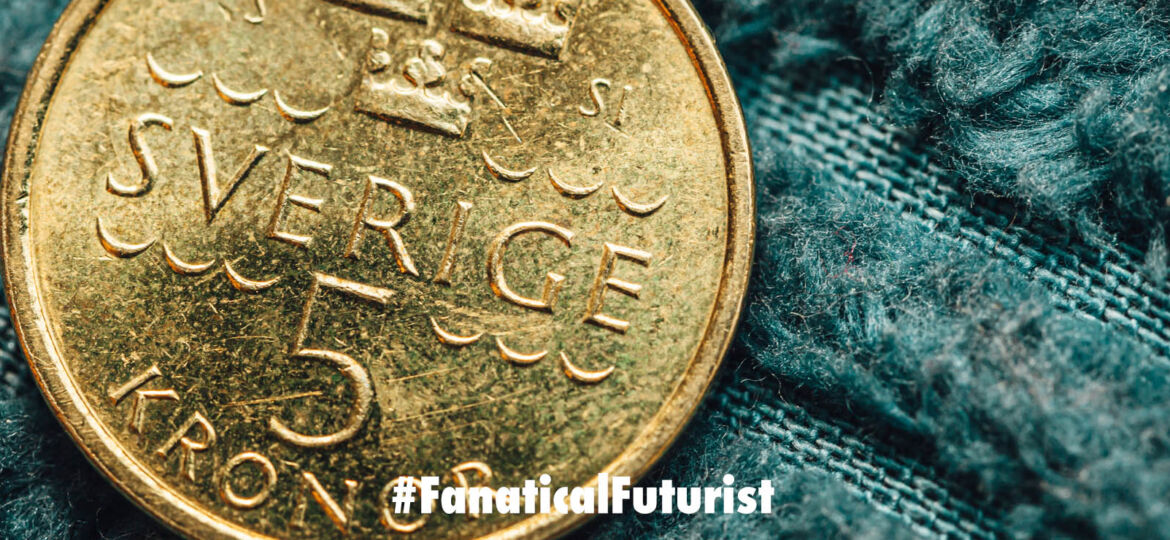
WHY THIS MATTERS IN BRIEF
Cash use is falling in many countries, so governments are now starting to trial fully digital alternatives.
 Interested in the Exponential Future? Connect, download a free E-Book, watch a keynote, or browse my blog.
Interested in the Exponential Future? Connect, download a free E-Book, watch a keynote, or browse my blog.
Cash is dying as more and more people use contactless payment systems and digital cash, which has increasingly been leading countries like China and Sweden, as well as Europe, the UK and US, to ask – at what point should they just kill cash off and take the plunge and develop their own central bank digital currencies. And in China’s case, whose central bank the People’s Bank of China, have been experimenting with rolling out a digital version of their sovereign currency that time could very well be sooner rather than later.
Recently Sveriges Riksbank, the Swedish central bank, who evaluated the situation a while ago announced that they’re now moving ahead with their plans and have started a trial for an E-Krona targeted at the general public. The solution is developed by Accenture using the Corda enterprise blockchain.
The bank was also keen to emphasise that at the moment no decision has been made to proceed with a Central Bank Digital Currency (CBDC), and at the moment the project is intended purely as a “learning experience.” Accenture won the contract to explore the E-Krona in December last year and the initial trial will last through to February 2021.
How an E-Krona might impact the Swedish economy depends in part on the design of the currency. Hence the need for the pilot project. Test users will store E-Krona in a digital wallet, enabling them to make and receive payments. Additionally, there will be solutions for smartwatches and cards and the possibility of using the currency offline may be explored.
Before a wallet can be used, it has to be activated by a participant connected to the blockchain network, who are mainly banks. Once activated the E-Krona can be used for retail payments, person to person payments, or transfers to and from bank accounts. The solution will also involve simulating the current financial infrastructure and settlement systems.
Banks will have to swap deposits in the central payment system RIX in exchange for E-Krona. Direct participants that operate nodes will need to have access to RIX, but the central bank also allows for indirect participants. The central bank controls the private blockchain network and is the only one that can decide who can add a node.
However, RIX is only used for the issue and redemption of the currency, not for transactions that will be done separately. Riksbank noted that because the blockchain network is separate from existing payment systems it could offer additional robustness if the primary network failed.
Recently both MORI and OMFIF published a 13,000 person survey of consumer attitudes towards CBDC and other digital currencies, and found a significant difference in appetite between emerging markets where citizens were keen, versus developed economies where consumers were much more cautious, so while we are still a way away from realising life without cash it looks like it will be more a matter of when not if.
















